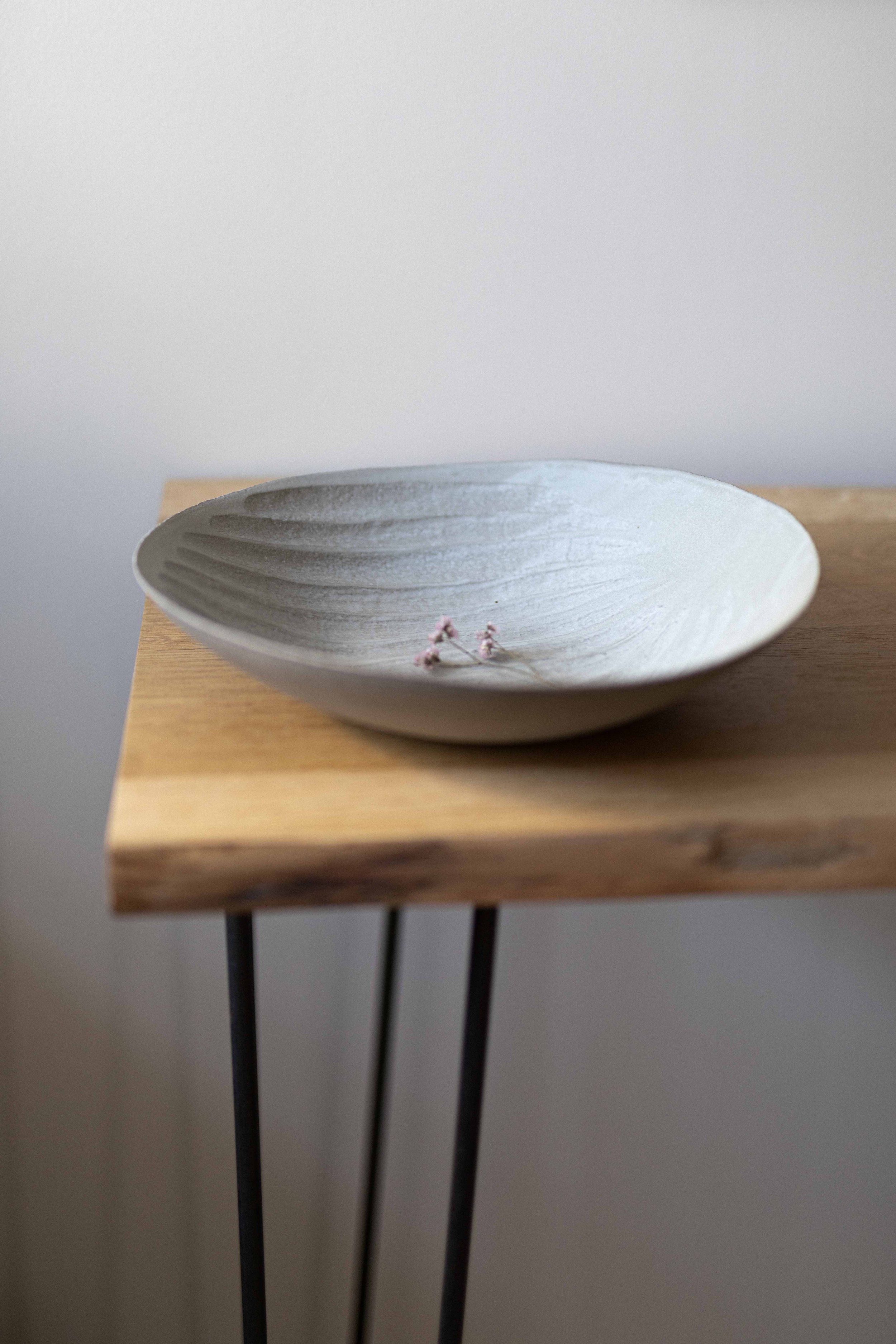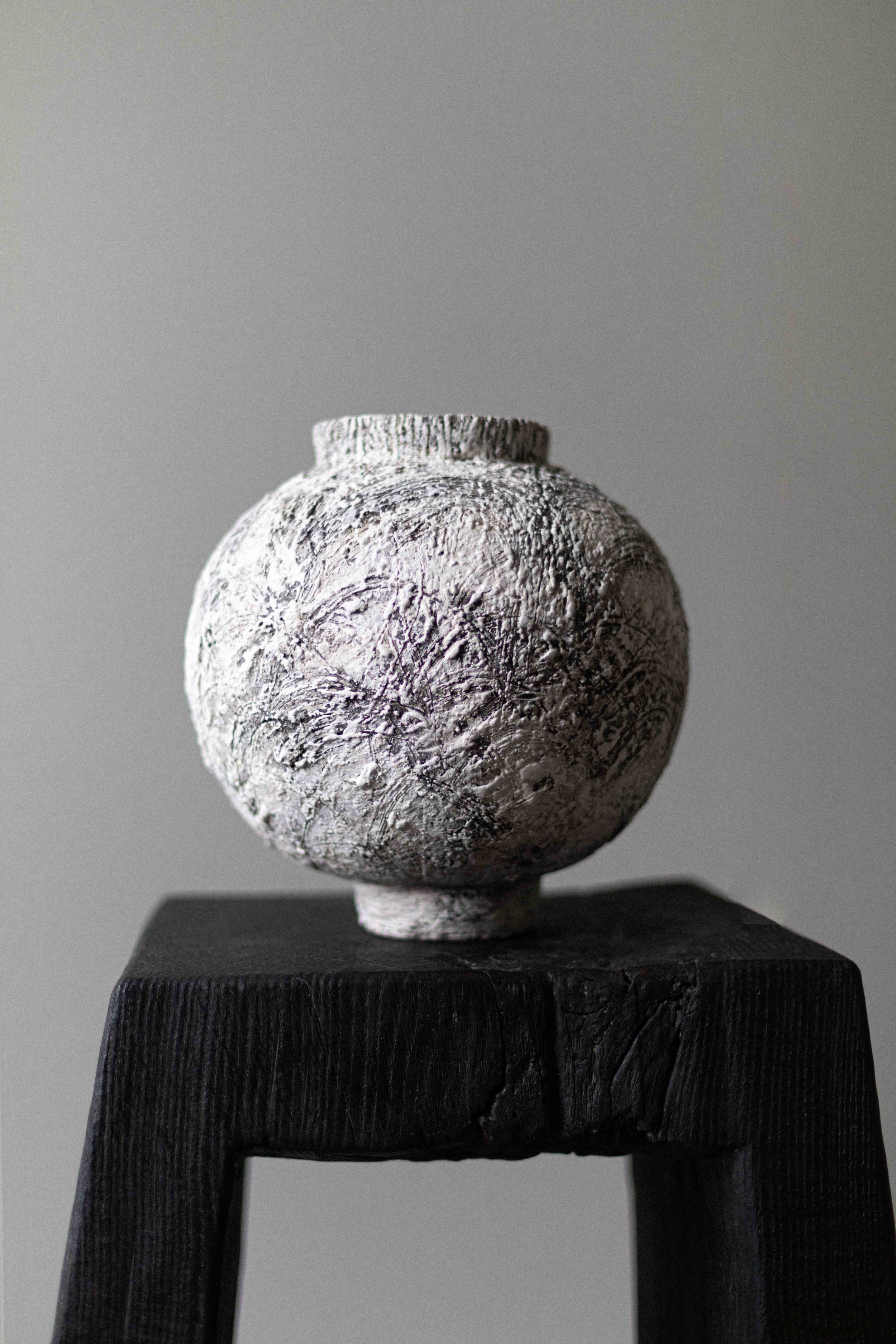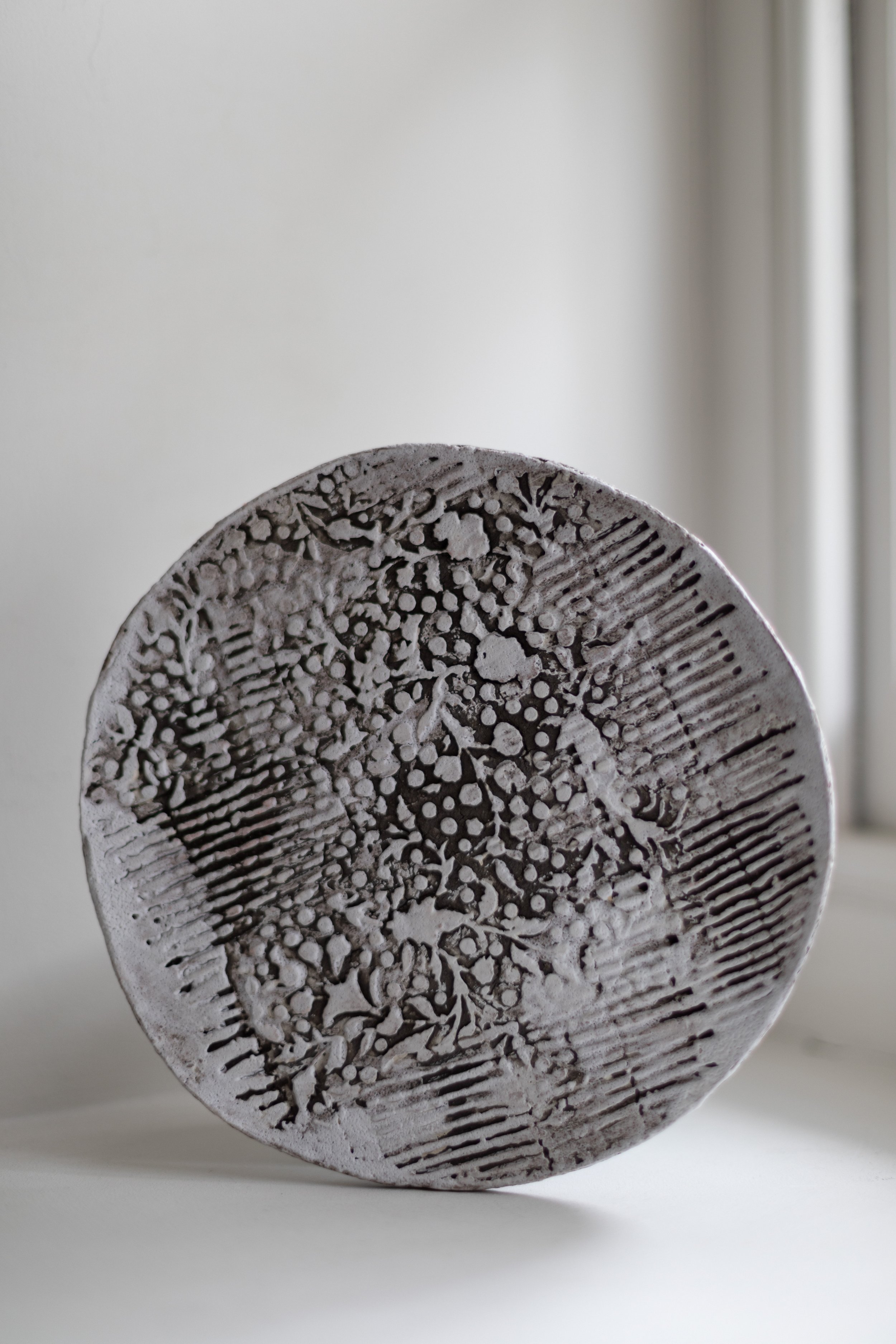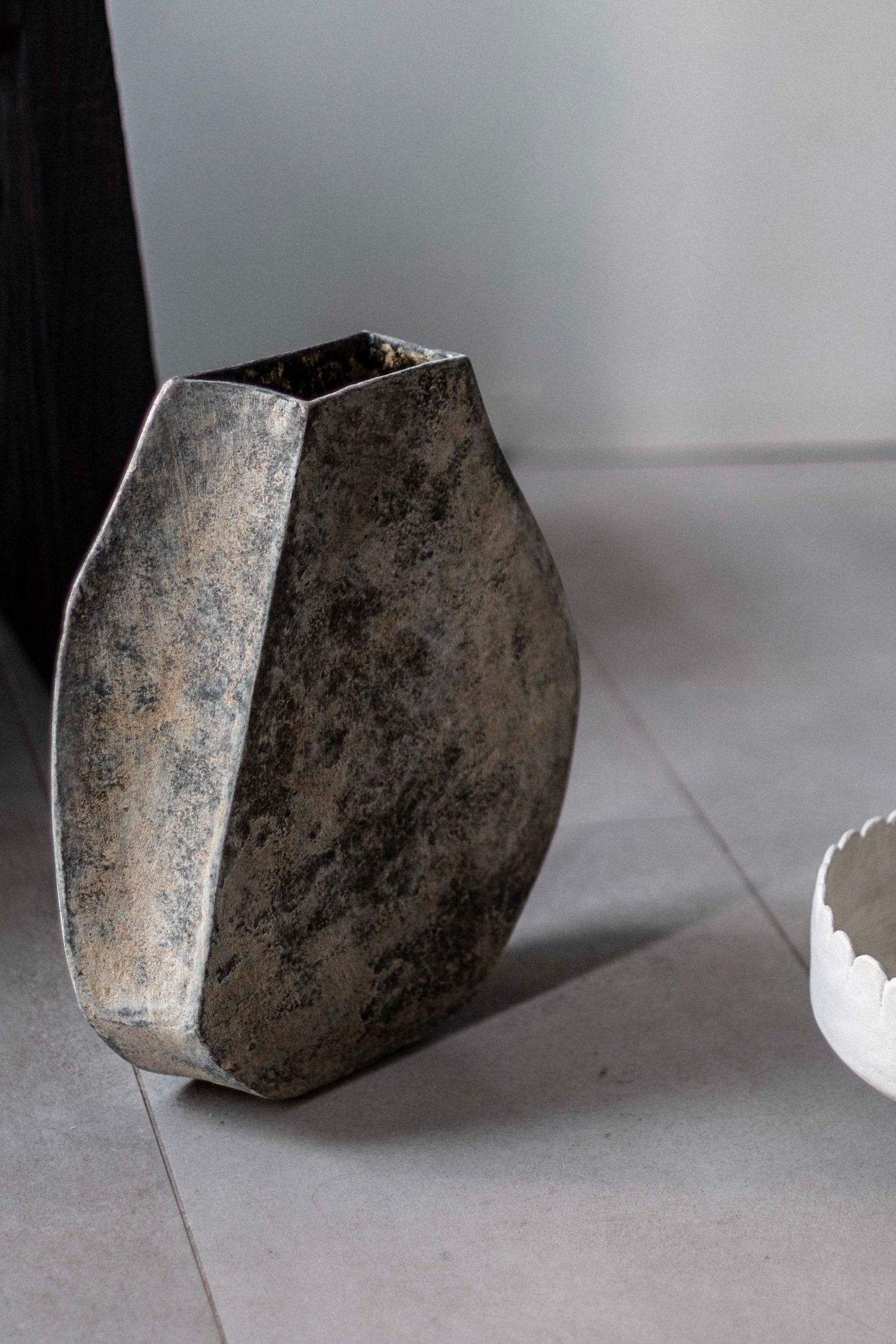Incremental Layers | Flow at Mare Street
Photography project at 195 Mare Street, Hackney, featuring pieces from our collection that engage with surface texture and the idea of layers and history.
“I have in mind rugged eroded surfaces, megaliths,
fossils, ancient encrusted marbles.”
_ Paul PhilpBuilt in 1697 as a grand country house, 195 Mare Street is one of Hackney's oldest buildings. Home to the Elizabeth Fry Refuge between 1860 and 1930, the property housed thousands of young women recently released from prison. In the twentieth century, it became the New Lansdowne Working Men’s Club before falling into disrepair. It is soon to be restored as a family home and community arts venue. New owners, Elizabeth and her family, generously welcomed our objects into the space before renovation.
“My work explores the redundancy and renewal of an object, connecting the past with the present. The evidence of the passing of time - frayed fabric, peeling paint, eroded architecture, rusting metals, decay and erosion, inspires me.”
_Lisa StockhamIn anticipation of this photoshoot, we became preoccupied with ideas of texture. We wanted to bring together works that complimented the rich surfaces of 195 Mare Street.
The processes of each featured maker have a relation to the layering of materials by various occupiers over the years in these beautiful rooms.
Abigail Schama’s pieces are wheel thrown from different combinations of dark and light clay bodies, which recently has included reclaimed clays from her shared studio. The recycled clay is composed of an unpredictable combination of what her and other makers are using – stoneware, porcelain, terracotta, black or red clays – and so the complexion of each piece represents a snapshot of a period in time, in the same way as the revealing of centuries of wallpapers.
Lisa Stockham’s pieces are reminiscent of cut sheets of fabric and similarly feel as if the form has been rebuilt from fragments.
The process of repetition is important to silversmith Francisca Onumah, who works from sheet metal obsessively layering different mark-making techniques, folding and impressing patterns onto the surface of the metal.
Similarly, Paul Philp’s stoneware surfaces are treated variously with incremental layers of oxides, wood ash glaze and slip, through multiple high-temperature firings, giving them the highly-textured, sometimes encrusted, appearance of relics.
These various making processes relate to the strata of materials formed over centuries at Mare Street.
“The body and form of clay is another surface for
making marks and cultivating textures.”
_ Abigail SchamaIt was such a pleasure to hear about the history of the building from Elizabeth and their plans for its future. We look forward to seeing how it evolves.
29th September - 8th October 2023
195 Mare Street’s last exhibition before their restoration project begins, is on now.
Gunneraceae, the first solo exhibition by Kate Goodrich.
Find out more about their exhibition program and projects here.
Featured works by |
British Ceramic Artist, Lisa Stockham
British Ceramic Artist, Paul Philp
British Ceramicist, Abigail Schama
Ghanaian-born Silversmith, Francisca Onumah
Swedish Potter, Maria Kristofersson
Furniture pieces by James Trundle & Isobel Napier
Photography & styling by James Trundle & Isobel Napier
















